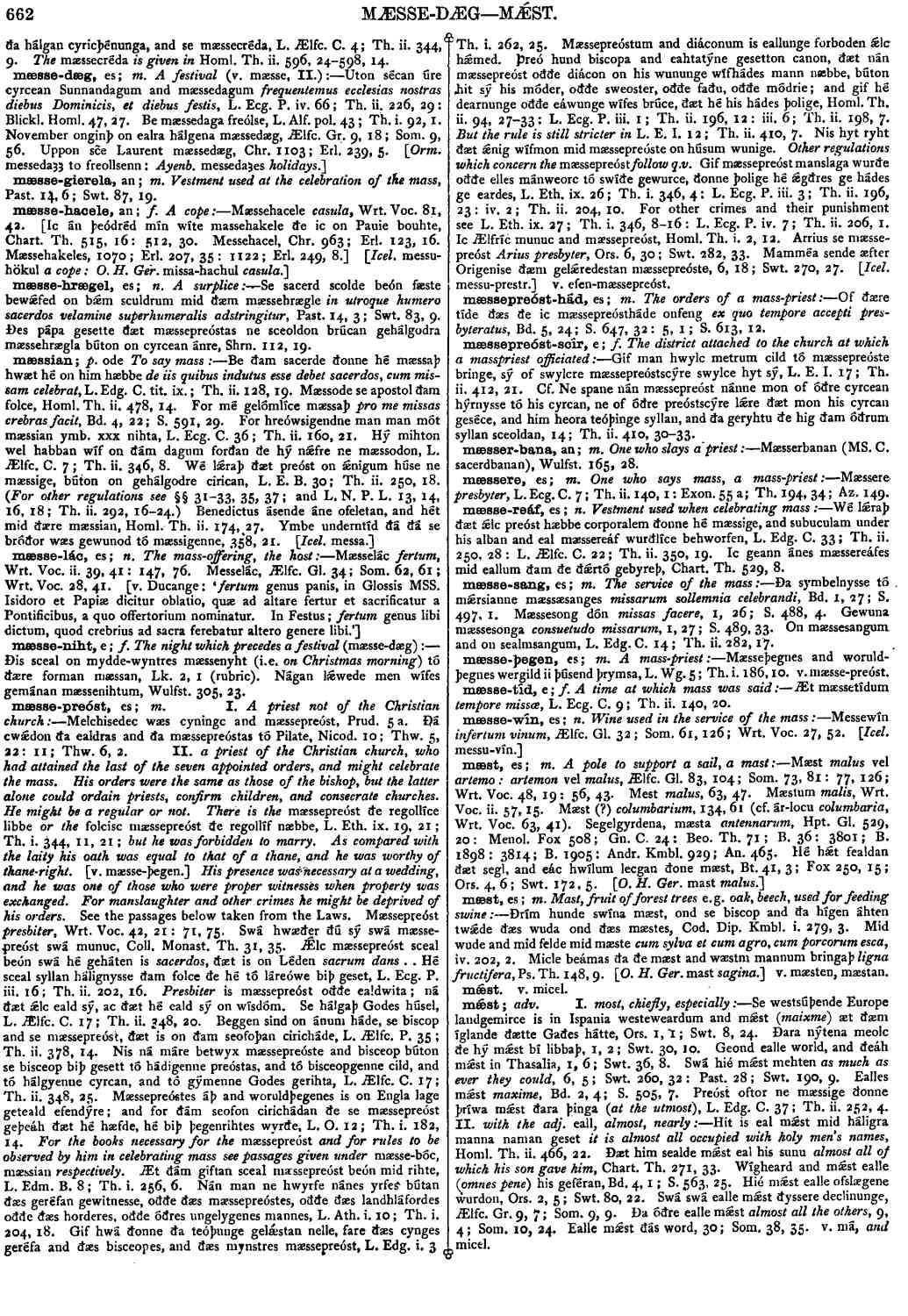mǽst
- adverb
-
Se westsúþende Europe landgemirce is in Ispania westeweardum and mǽst (maixme) æt ðæm íglande ðætte Gaðes hátte,
- Ors. 1, 1 ;
- Swt. 8, 24.
-
Ðara nýtena meolc ðe hý mǽst bí libbaþ,
- 1. 2 ;
- Swt. 30, 10.
-
Geond ealle world, and ðeáh mǽst in Thasalia,
- 1. 6 ;
- Swt. 36, 8.
-
Swá hié mǽst mehten
as much as ever they could,
- 6, 5 ;
- Swt. 260, 32: Past. 28 ;
- Swt. 190, 9.
-
Ealles mǽst
maxime,
- Bd. 2, 4 ;
- S. 505, 7.
-
Preóst oftor ne mæssige ðonne þríwa mǽst ðara þinga
(at the utmost),
- L. Edg. C. 37 ;
- Th. ii. 252, 4.
-
Hit is eal mǽst mid háligra manna naman geset
it is almost all occupied with holy men's names,
- Homl. Th. ii. 466, 22.
-
Ðæt him sealde mæst eal his sunu
almost all of which his son gave him,
- Chart. Th. 271, 33.
-
Wígheard and mǽst ealle (omnes pene) his geféran,
- Bd. 4, 1 ;
- S. 563, 25.
-
Hié mǽst ealle ofslægene wurdon.
- Ors. 2, 5 ;
- Swt. 80, 22.
-
Swá swá ealle mæst ðyssere declinunge,
- Ælfc. Gr. 9, 7 ;
- Som. 9, 9.
-
Ða óðre ealle mǽst
almost all the others,
- 9, 4 ;
- Som. 10, 24.
-
Ealle mǽst ðás word,
- 30 ;
- Som. 38, 35.
Bosworth, Joseph. “mǽst.” In An Anglo-Saxon Dictionary Online, edited by Thomas Northcote Toller, Christ Sean, and Ondřej Tichy. Prague: Faculty of Arts, Charles University, 2014. https://bosworthtoller.com/22227.
Checked: 1